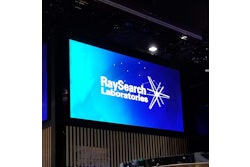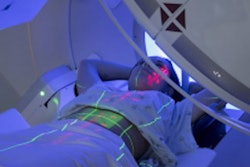The U.K. Society of Radiographers (SoR) has warned that replacing radiotherapy machines with modern equipment alone will not resolve the mounting workforce challenges facing radiotherapy services.
SoR's announcement on 25 June comes after the Department for Health and Social Care (DHSC) announced it had paid to replace linear accelerator (LINAC) machines at 28 hospitals, funded by a £70 million investment as part of DHSC's Plan for Change.
New machines will be rolled out at hospitals across the country from August 2025, prioritizing hospitals that currently use outdated treatment machines older than 10 years. The replacements follow the recent rollout of 13 new dual-energy x-ray absorptiometry (DEXA) scanners across the country.
The SoR welcomed the new radiotherapy equipment announcement as “a critical and long-overdue step toward modernising radiotherapy infrastructure.” However, Spencer Goodman, SoR's professional officer for radiotherapy, noted that a "whole-system approach" is essential.
“Radiotherapy delivery depends not just on state-of-the-art technology but on a resilient, well-staffed, and well-supported workforce operating within efficient and patient-centred care pathways,” Goodman said.
Radiography departments across the country are currently suffering from a 7.7% shortfall (approximately 308 whole-time equivalent posts), the SoR noted, citing the Royal College of Radiologists’ 2024 clinical radiology and clinical oncology census reports.
Goodman issued five recommendations, the first being "a strategic workforce investment that immediately will fund training, apprenticeships, and retention strategies for therapeutic radiographers."
See the full notice and recommendations on the SoR website.



















